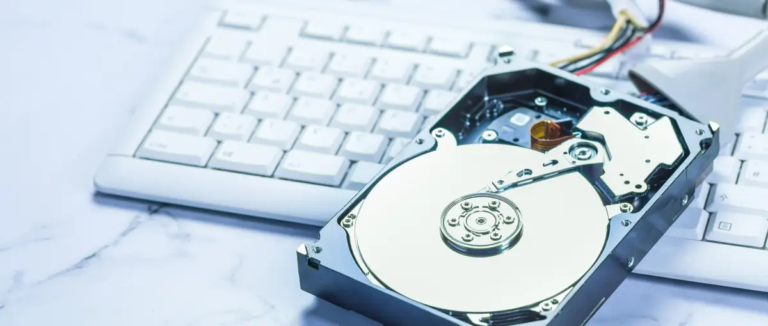A corrupted hard disk can be a nightmare. It can cause you to lose important data, disrupt your work, or even make your computer unusable. Thankfully, with a little proactive care, you can minimize the risk of hard drive corruption and keep your data safe. In this article, we’ll explore practical strategies to prevent hard disk corruption, discuss common causes, and give tips to maintain your drive’s health over the long run.
What is Hard Disk Corruption?
Hard disk corruption occurs when the data on your hard drive becomes inaccessible or damaged. It can result from physical damage, software issues, viruses, or sudden power outages. When this happens, your files may become unreadable, or the operating system may fail to boot. In the worst cases, it might render the entire disk unusable.
1. Regular Backups: Your Best Defense
No matter how careful you are, sometimes things can go wrong. That’s why regular backups are crucial. Backing up your data ensures that even if your hard drive gets corrupted, you won’t lose everything.
- Use External Drives: Back up important files on an external hard drive or SSD.

- Cloud Storage: Services like Google Drive, Dropbox, and iCloud provide easy access and automated backups.
- Automate Your Backups: Set up automatic backups so you don’t forget. Many operating systems have built-in tools (e.g., Windows Backup or Time Machine for macOS).
Even with preventive steps, backing up your data regularly will protect you from major headaches if corruption occurs.
2. Avoid Physical Damage to Your Hard Drive
Physical damage is one of the leading causes of hard disk corruption. If your computer or external drive is mishandled, it can affect the hardware inside the disk.
- Keep Your Laptop Safe: Use protective cases and avoid bumping or dropping it.
- Place External Drives Securely: Avoid moving external drives while they are in use.
- Keep Away from Heat and Moisture: Store drives in a cool and dry environment to prevent damage.
Handling drives with care extends their lifespan and minimizes the chances of physical damage leading to corruption.
3. Protect Against Power Surges and Sudden Shutdowns
Hard drives are vulnerable to sudden power losses or surges. If your computer shuts down unexpectedly while writing data, it could lead to hard disk corruption.
- Use a UPS (Uninterrupted Power Supply): A UPS can keep your system running for a short period during a power outage, giving you time to save your work and shut down properly.
- Enable Automatic Save: Programs with auto-save functionality can reduce the impact of sudden shutdowns.
- Shut Down Properly: Always use the proper shutdown option instead of forcing the power off.
These small practices will help prevent your hard drive from being damaged by sudden power interruptions.
4. Regularly Scan for Malware and Viruses
Viruses and malware can corrupt data on your hard disk and compromise the entire system. A good antivirus solution acts as a shield against these threats.
- Install Antivirus Software: Make sure it’s updated regularly to catch new threats.
- Use Firewalls and Anti-Malware Tools: These add an extra layer of protection to your computer.
- Avoid Suspicious Links: Be cautious with email attachments and untrusted websites.
Regular scans keep your system safe and reduce the chance of hard disk corruption from malicious software.
Learn More: How to find out Malicious Software on your Computer?
5. Defragment Your Hard Drive (For HDDs)
Fragmentation occurs when files are spread across different sectors of the hard disk, making data retrieval less efficient and increasing the chance of corruption. While SSDs don’t need defragmentation, traditional hard disk drives (HDDs) benefit from this process.
- Use Built-in Tools: Windows provides a “Defragment and Optimize Drives” tool to keep your HDD in good shape.
- Schedule Defragmentation: Set it to run automatically every few weeks.
Defragmentation reduces strain on the drive and helps maintain healthy data management.
6. Monitor Disk Health Regularly
Keeping an eye on your hard drive’s health can help you catch problems early and prevent corruption.
- SMART Monitoring: Most hard drives come with SMART (Self-Monitoring, Analysis, and Reporting Technology) tools that warn of impending failures.
- Third-Party Tools: Use software like CrystalDiskInfo or Disk Utility on macOS to monitor drive health.
- Check for Bad Sectors: Running tools like “chkdsk” on Windows identifies and fixes issues related to bad sectors.
By monitoring the health of your disk, you can address potential issues before they cause serious damage.
7. Avoid Overloading Your Drive
Hard drives need free space to perform optimally. Running out of storage can lead to performance issues and increase the likelihood of disk corruption.
- Keep 10-15% of Storage Free: This space is used for temporary files and system updates.
- Delete Unused Files and Programs: Regularly clean up old files to free up space.
- Use Storage Analysis Tools: Tools like WinDirStat or Disk Inventory X can help identify what’s taking up space.
Freeing up space ensures your hard drive operates efficiently and stays healthy over time.
Learn More: How to keep your Mac running at its best for years on end?
8. Update Your Software and Drivers
Outdated software can cause conflicts, leading to data corruption on your hard drive. Keeping your system up to date minimizes the risk.
- Install OS Updates: These updates often contain important bug fixes and security patches.
- Update Drivers: Outdated drivers can cause hardware to malfunction, leading to potential data loss.
- Update Disk Management Software: If you use tools to manage partitions or backups, keep them updated.
Keeping your software current reduces the risk of compatibility issues and keeps your system running smoothly.
9. Use Reliable Power Supplies for External Drives
If you use an external hard drive, you must use a reliable power source. Unstable power can corrupt the disk.
- Use the Original Power Adapter: Avoid using substitutes if your external drive has one.
- Check USB Ports and Cables: Damaged cables can interrupt data transfers and lead to corruption.
- Avoid Frequent Ejections: Safely eject your drive to avoid corrupting files.
Using reliable power and connection sources minimizes interruptions during use and keeps your external drives safe.
10. Partition Your Hard Drive
Partitioning your hard drive allows you to separate your data and operating system files, minimizing the chance of losing everything if one section becomes corrupted.
- Separate OS from Personal Files: Your personal data is still safe if the OS becomes corrupted.
- Use Multiple Partitions: You can dedicate specific partitions for backups, work files, or media.
- Use Disk Management Tools: Both Windows and macOS provide easy-to-use partitioning tools.
By organizing your data, you reduce the risk of losing all files due to corruption in one section of the drive.
Conclusion: Prevention is Better Than Cure
Preventing hard disk corruption requires a combination of good habits and regular maintenance. Backing up your data is the most important step because it ensures your files are safe even if the worst happens. Careful handling of hardware, regular virus scans, and system updates also go a long way in maintaining a healthy drive.
Remember, a little effort today can save you a lot of trouble tomorrow. Whether it’s using cloud storage, monitoring your disk health, or avoiding physical damage, these preventive measures will help you keep your data safe and your hard disk running smoothly for years to come.
By following these simple steps, you’ll not only prevent hard disk corruption but also extend the life of your drives and enjoy a more stable computing experience.



